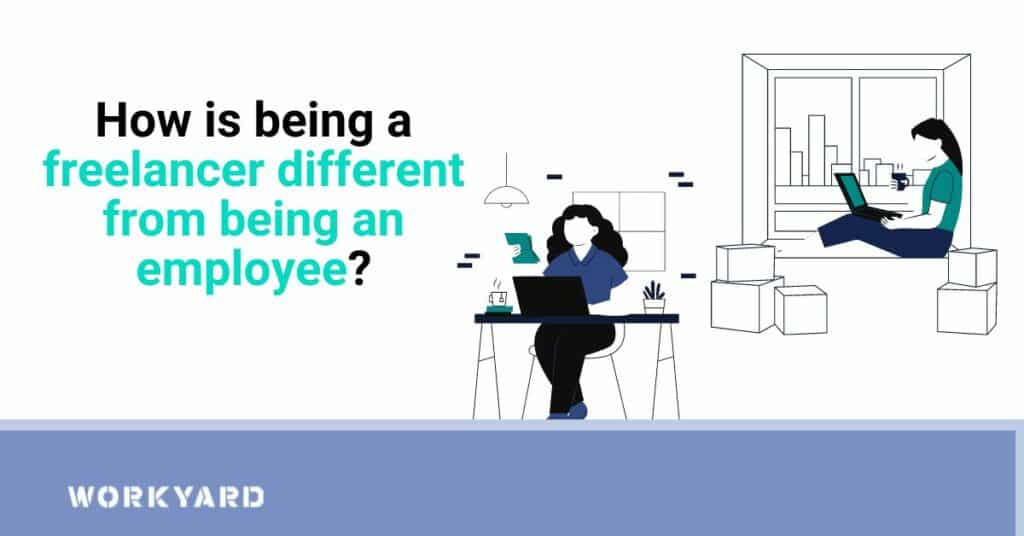Freelancing and traditional employment offer distinct experiences, each with its own set of advantages and challenges. Let’s explore them below.
Freedom vs. Stability:
Freelancers enjoy autonomy, choosing their projects, clients, and work hours. Conversely, employees typically have stable income, benefits, and job security.
Flexibility vs. Structure:
Freelancers have flexibility in their schedules and workplaces, while employees adhere to set hours and locations defined by their employers.
Responsibility vs. Support:
Freelancers handle all aspects of their business, including taxes, insurance, and marketing, whereas employees receive support from their employers in these areas.
Variety vs. Consistency:
Freelancers engage in diverse projects and industries, experiencing constant change, whereas employees often focus on consistent tasks within their job roles.
Income Control vs. Fixed Salary:
Freelancers have the potential for higher income but face fluctuations and irregular paychecks, whereas employees receive a predictable salary with benefits.
Networking vs. Teamwork:
Freelancers rely on networking to find clients and opportunities, often working independently, while employees collaborate within structured teams.
Skill Development vs. Specialization:
Freelancers continually develop various skills to meet client demands, whereas employees may specialize in specific roles within their organizations.
Risk vs. Stability:
Freelancers bear the risk of fluctuating demand and market changes, while employees benefit from the stability provided by their employers.
Ultimately, choosing between freelancing and traditional employment depends on individual preferences, goals, and risk tolerance. Understanding the differences can help individuals make informed decisions about their career paths. Whether seeking independence and flexibility or stability and security, both freelancing and traditional employment offer unique opportunities for professional growth and fulfillment.

